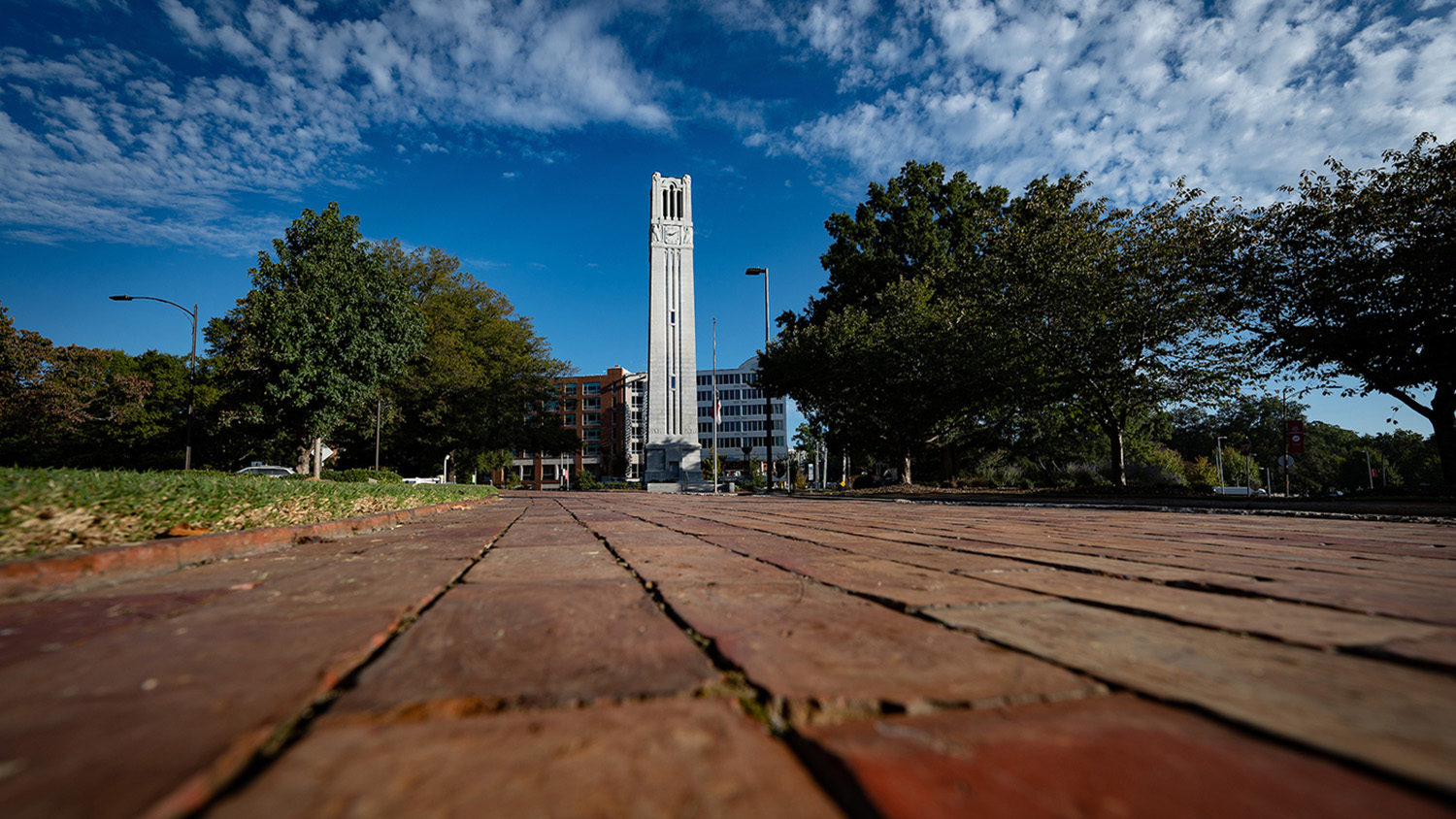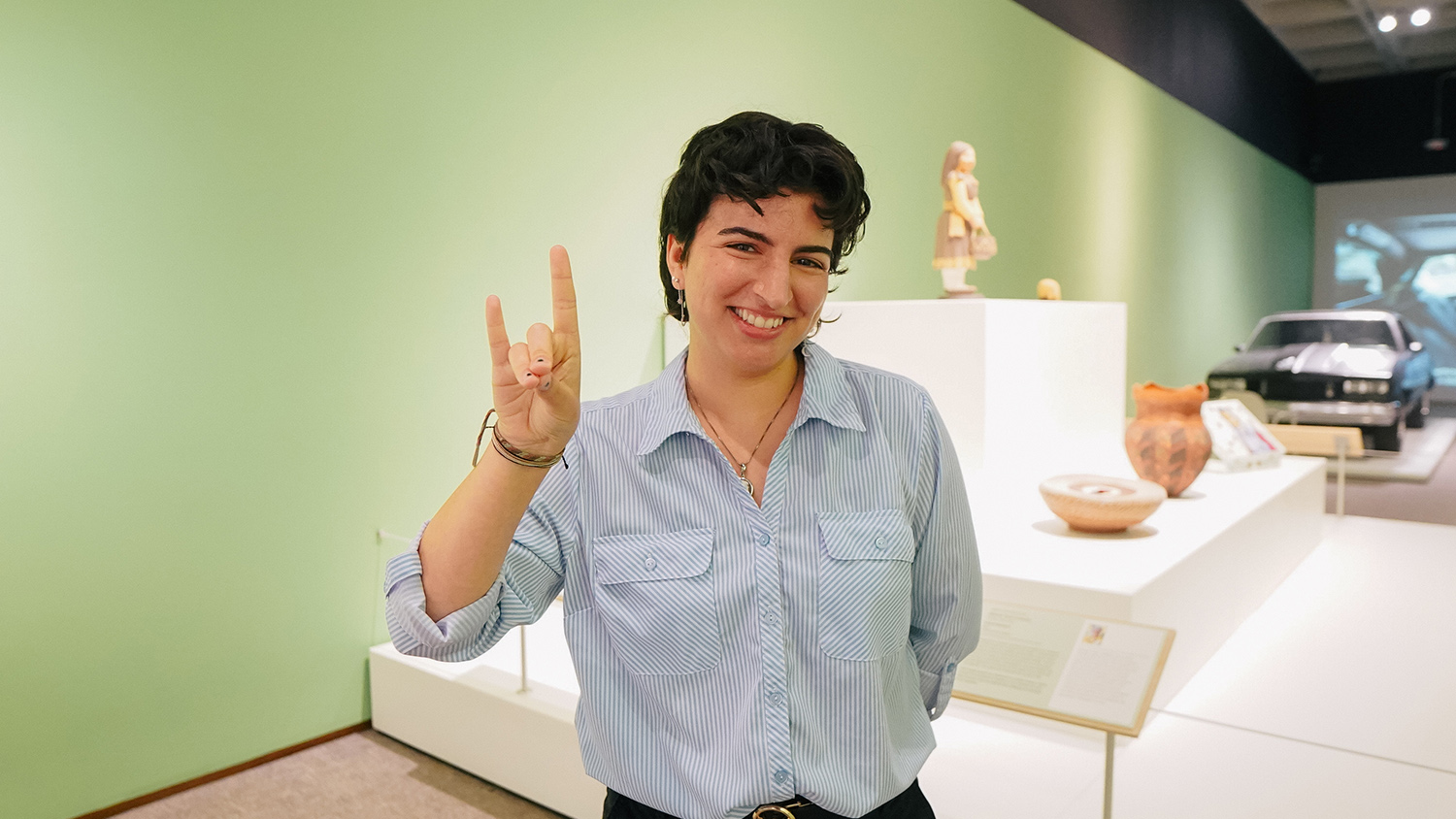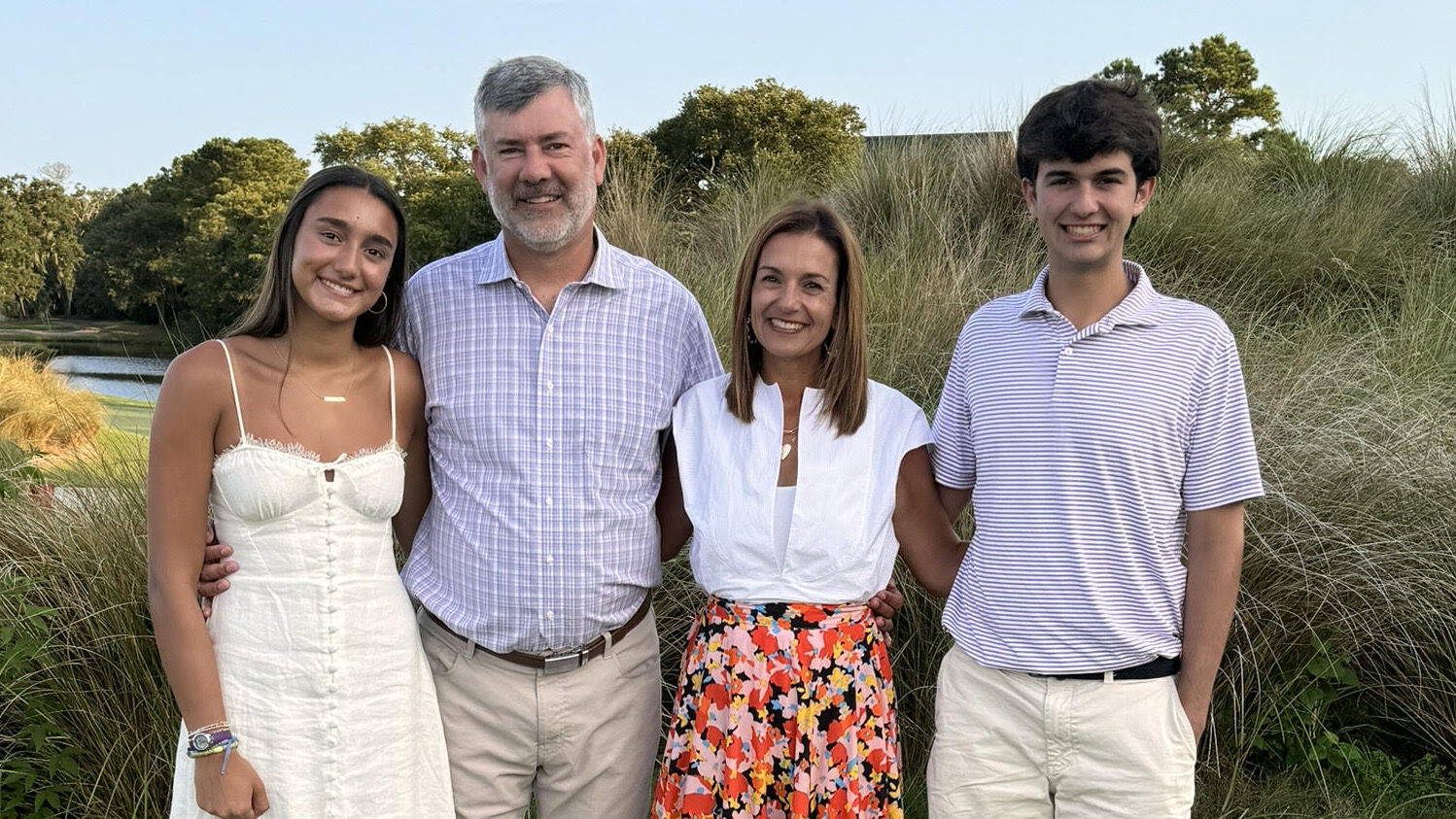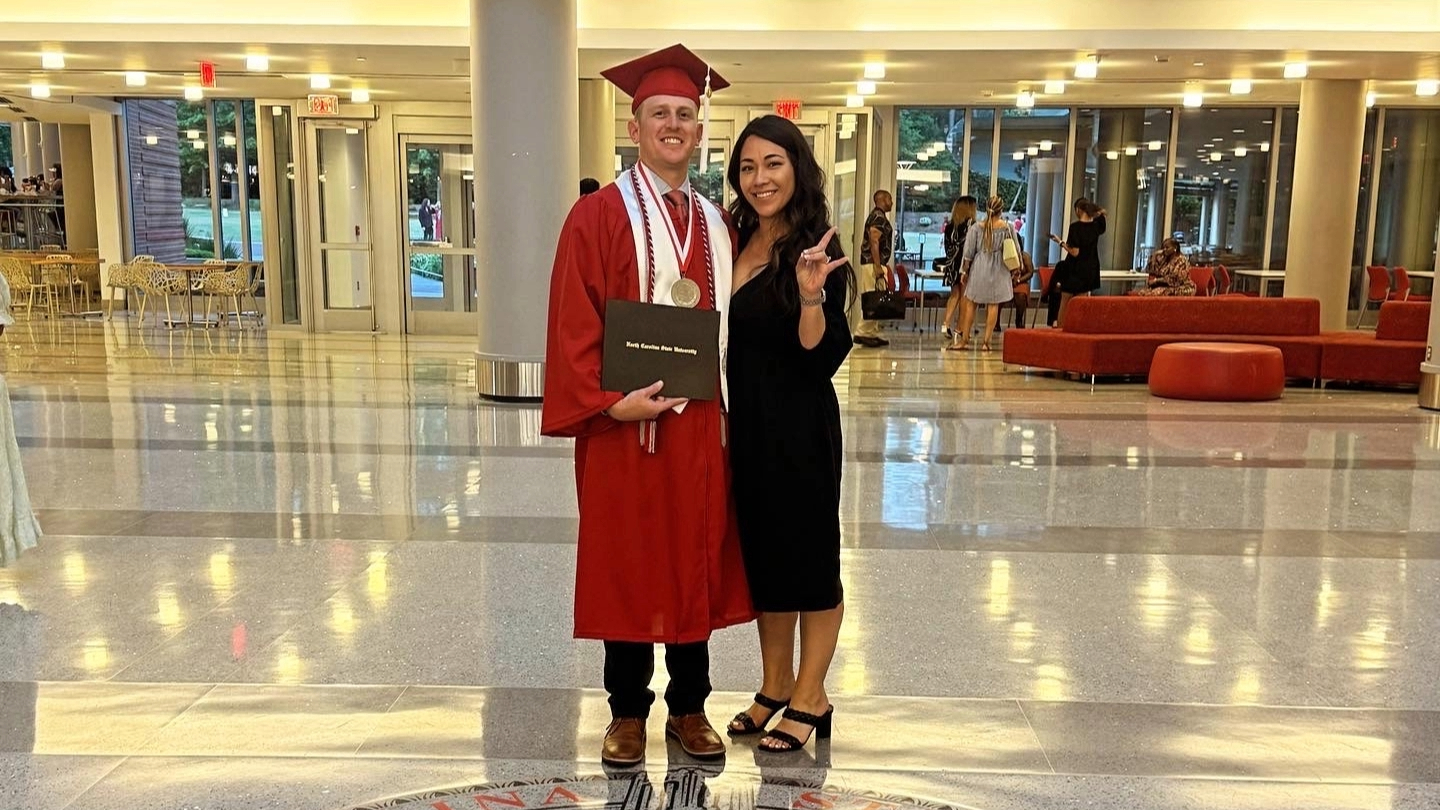For the past two Februaries, communication alumna Tensie J. Taylor has showcased the importance and impact of Black History Month in her life. Through social media, Taylor has shared her story and the stories of other Black Americans that have influenced the world around them.
Since graduating from NC State in 2009, Taylor has spent her career in various higher education positions, working to create diverse and equitable spaces for students. She is also an alumna of the University of Southern California, where she received her master’s degree. She now works as a consultant at Lindauer, a global executive search and talent firm.
We spoke with Taylor about her experience and the personal significance Black History Month has in her life.
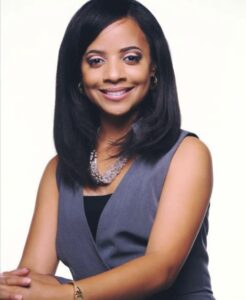
What led you to start your Black History Month series?
I started my Black History Month series to honor my late father, Robert Taylor, last year. On Feb. 1, 2022, to commemorate Dad, I highlighted several of his accomplishments being the first Black man in many areas. I received much praise, positive comments and shares from that post. This year, I decided to go further into Black History Month. On Feb. 1, I again started the month by honoring Dad. This time I shared about the contributions of Black Americans, some of whom I have had the pleasure of meeting, such as Dr. Franklin McCain, one of the Greensboro Four who helped integrate lunch counters in Greensboro, North Carolina, and Dr. Cornel West, an activist and professor who has held professorships at many Ivy League institutions. I wanted to educate all people about the accomplishments of Black people, and my posts have been well received. People have reshared the information, and I have received messages from people thanking me for using my platform to elevate the significance of Black and African American inventors, achievers, educators, activists and others.
What significance does Black History Month have to you?
Black History Month is of extreme significance to me. I am the great-great granddaughter of former slaves, and I say this proudly! In 1865, my great-great-grandfather Dodd Thomas was freed from slavery at the end of the Civil War. He approached the man who enslaved him and requested to buy land so that he could begin farming and making a way for himself. This property still remains in our family today on my father’s side. On my mother’s side is my great-great-grandmother Peggy Burt, who was born an enslaved person in 1839. At a young age, Grandma Peggy’s sister was sold by her slave master to a slave owner in Georgia; Peggy never saw her sister again.
For my ancestors to be forced into slavery, have their families broken and torn apart, and each day, worry about if they would be beaten, whipped, lynched, hanged or have their eyes burned out, yet have hope and STILL be grateful for God’s blessings, is a testament to the strength that runs through my veins. Despite the heinous and iniquitous treatment and enslavement that my ancestors endured, I pay homage to them each day by excelling in everything I do. There is no such thing as mediocrity in my vocabulary. My ancestors paid the price for me to be where I am today, and the least I can do is excel.
To be the great-great-granddaughter of former slaves, yet go on to graduate with a Bachelor of Arts in communication and a minor in psychology from NC State, as well as a Master of Education in postsecondary administration and student affairs from the University of Southern California, when my grandparents could not even read or write, is a testament to the tenacious blood that runs deep in my veins. I choose to honor those who came before me by taking advantage of every opportunity that they could not, simply because of the color of their skin. I am pertinacious. My siblings and I all hold master’s degrees, and my brother even has two: a Master of Science in mechanical engineering from Stanford University and a Master of Divinity from The General Theological Seminary in New York. I am my ancestors’ wildest dreams!
When looking back at the legacies left behind by your family, what are the most impactful lessons you learned?
I have learned a myriad of impactful lessons. One lesson my parents instilled in me at a young age is to treat all people with dignity, respect and kindness. It does not matter if you are a custodial worker, a secretary or the CEO of a Fortune 500 company, all these individuals deserve to be treated with decency and respect. I never forgot this, and I believe this has aided in my successes in life, simply because of how I treat people. I like to leave people better than how I found them.
Another lesson I learned and witnessed is that your background does not matter, if you believe in yourself, put in the work, and have faith, you can accomplish your dreams and aspirations. My parents grew up in the segregated South, were dirt poor and worked on the farm. My mom was a sharecropper, and she could only go to school when it rained because when it rained, they could not work in the fields. Her house did not have any running water or electricity, and yet Mom graduated at the top of her high school class and was the first in her family to attend and graduate from college. She attended North Carolina Central University, a Historically Black College and University (HBCU) in Durham; she was not allowed to attend a predominantly white institution because of the color of her skin. Dad wanted to attend NC State, but he could not because he was Black. To be able to attend the institution that my father wanted to attend but could not because of his skin is a testament to how far we have come as a society. However, in the words of Robert Frost, “…and miles to go before I sleep, and miles to go before I sleep,” there is still a plethora of work that needs to be done to advance the plight of Black Americans and persons of color who continue to be marginalized, underserved and face discrimination on a daily basis.
Your memoir, BULLIED From Terror to Triumph, My Survival Story, focuses on the bullying you faced while in school. How did this experience impact you and the way you approached hardships?
My memoir recounts the 13 years of bullying I faced from students and even teachers at school. I was verbally, physically and emotionally bullied by my peers at school. From being pushed in lockers, having my trophies kicked after awards day, to people making fun of my physical appearance or the clothes I wore, I was treated rudely and disrespectfully to the point that I contemplated suicide when I was in high school. Thankfully, I did not take my life and I used that moment as more fuel and motivation to not let the words and actions of others be so big that I would take my own life. If students were upset because I won five awards, then they would be even more upset the next year when I won ten. I developed this strong, unequivocal desire and drive to work assiduously to help people along the way and to ignore the negativity from others. What I learned is that those who are doing less than someone have the most to say and they do this because they are speaking from insecurity. Those who are secure in themselves have no problem complimenting or giving kudos to others. I choose to exude positivity and find joy in life, even when joy is not returned. I am in control of my happiness and destiny, no one else.
How did your time at NC State prepare you for any challenges you faced in your career?
I thoroughly enjoyed my time at NC State. My brother and sister both attended this phenomenal institution, so I was exposed to the greatness of NC State when I was 8 years old. My brother, the Rev. Jemonde Taylor, and I are 10 years apart, so when he was a freshman at NC State, I was in elementary school. I would visit him on campus. He took me to a basketball game, we had lunch at Fountain Dining Hall, and I visited his dorm and toured campus. Ever since then, I have loved the Wolfpack!
When I decided to pursue my studies, there were many outstanding faculty and administrators, such as Edward Funkhouser, Monica Leach and Tom Stafford. I met many wonderful people who I remain friends with to this day. I was a chancellor’s aide, president of the African American Heritage Society, CHASS Student of the Month, etc.; I truly took advantage of the opportunities afforded to me at NC State. Because I was so involved and networked with students, professors, administrators and even the chancellor, I was prepared in my career to be comfortable talking to high profile people and feeling confident in any room I enter. I have so much love for NC State and the College of Humanities and Social Sciences!
Life truly comes full circle because recently, I was instrumental in hiring the executive director of corporate and foundation relations for NC State, as my search firm, Lindauer Global, was selected to lead this search. I served as consultant and thoroughly enjoyed working with Carrie Bhada, Reid Ricciardi and Carmen Russell. Because I am an alumna and in 2010 worked for NC State’s Office of Institutional Equity and Diversity, I was able to bring my lived and relatable experience to the candidates I met on this search. NC State prepared me for my career in a multitude of ways.
What’s next for you?
What is next for me is that I want to continue to use my influence for good and help people get to C-suite positions. Since I started my position as consultant at Lindauer Global a little more than 1.5 years ago, I have helped with the hiring of five diverse candidates at universities, institutes and nonprofit organizations. To see that I am making a difference and an impact makes me feel euphoric! I would also love to become an international motivational speaker. I love to inspire, motivate and empower others through my words, and if I could travel the world doing this, it would be a dream come true!
What message do you have for other Black women in our college?
My message to other Black women in the college is to know who you are and whose you are. Understand the knowledge, background, education and diverse-lived experience you bring to the table and know that you belong. If others doubt you or try to test you, which they will, hold your head up high, and keep walking in Black excellence. It is not what people call you, but what you answer to, and I only answer to positive names. Black women, let us act as ladies and queens with the way we walk, talk, dress and comport ourselves. May we continue to show the world that we belong and may we always invite others to have a seat at the table. Happy Black History Month!
- Categories:
